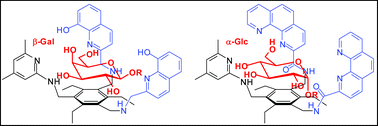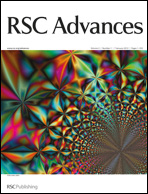Recent developments in the molecular recognition of carbohydrates by artificial receptors
Abstract
Despite the key role that carbohydrates play in a wide range of biological processes, the molecular details of carbohydrate-mediated recognition events are not fully understood. In this context, artificial receptors using noncovalent interactions for sugar binding provide useful model systems to study the basic principles of carbohydrate-based molecular recognition processes. The studies in this area are also strongly motivated by the belief that carbohydrate-binding agents could be used for the detection and treatment of diseases. This review covers representative examples of carbohydrate receptors operating through noncovalent interactions, with a focus on developments in receptor systems over the last two years.

- This article is part of the themed collections: Molecular modelling and Organic Collection: from theory to synthesis, from molecules to materials, catalysis and beyond

 Please wait while we load your content...
Please wait while we load your content...